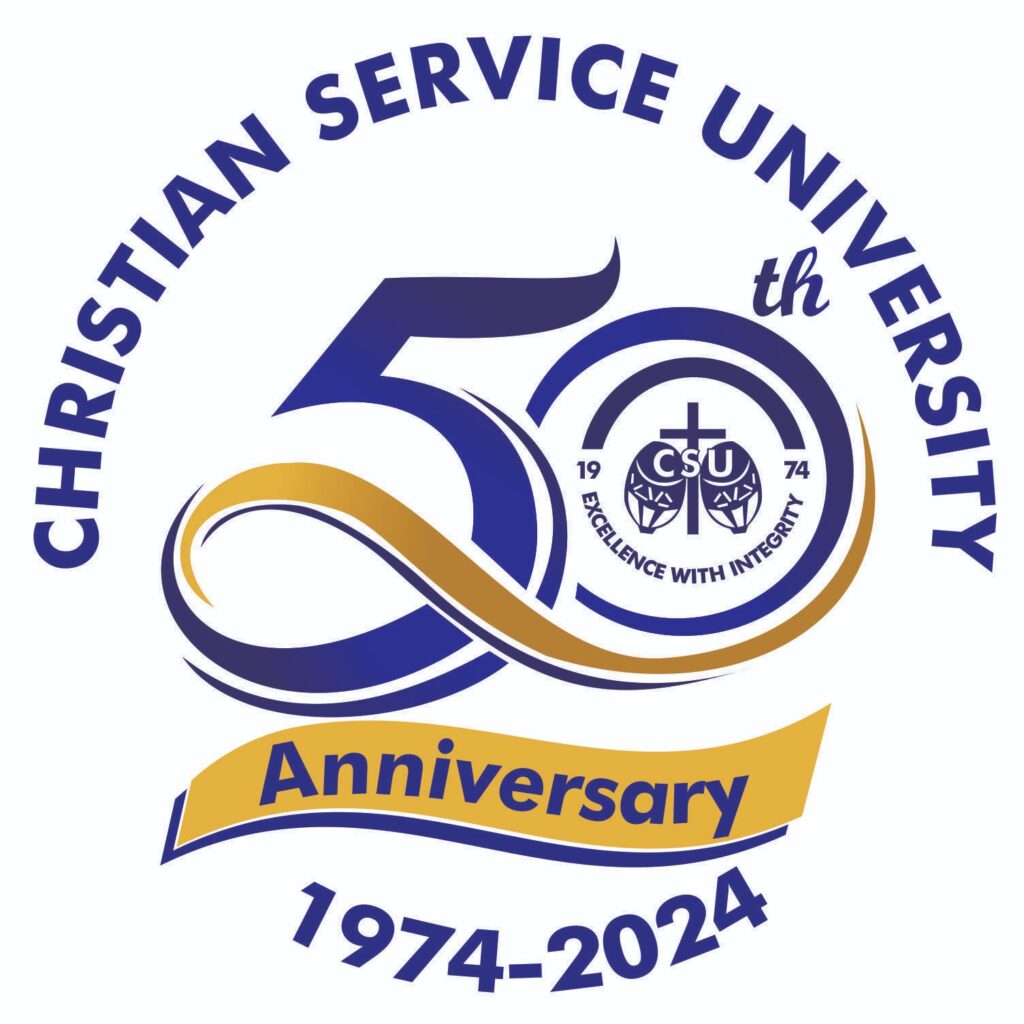Our Core Values
The Christian Service University College cherishes and upholds the following core values which it deems as central and basic to the institution. They are:
- The Lordship of Jesus Christ.
- Integrity
- Hard Work
- Good Stewardship of Resources
- Mutual Support and Care
The Lordship of Jesus Christ
The Christian Service University College, as a Christian institution, is committed to the Lordship of Jesus Christ and living in obedience to His will.
This involves trusting Him to meet every need – material, spiritual or emotional. It also involves seeking and accepting His guidance for the institution and depending on His divine leadership.
Integrity
The University College believes in integrity, which is defined as moral uprightness, honesty, reliability, incorruptible, wholeness and soundness of character. It involves transparency, and gives no room for foul play either in public or in private.
Hard work
CSUC is dedicated to hard sacrificial, diligent and conscientious work; always striving to do things better and continuously improving and innovating to deliver the best possible outcomes.
By this we seek excellence in all our endeavours and are committed to continuous improvement through perseverance even in the face of hardship and opposition.
Good Stewardship
CSUC believes and upholds the belief of divine ownership of both the natural, material and spiritual world as well as the souls of all humankind. we are committed to accountability and responsibility in all our actions. It adheres to the biblical principle that those who have been given a trust must prove faithful (1 Corinthians 4:2).
As such we are dedicated to the efficient and effective use of the institution’s resources (physical, intellectual, spiritual and financial) to achieve maximum results.
Mutual Support and Care
CSUC upholds the Christian virtues of love, oneness and fellowship. Love and mutual support for one another are thus encouraged as well as work for unity and oneness among members of the community.
We are committed to the Biblical principle of carrying each other’s burdens (Gal. 6:2). This includes help and support (spiritually and materially).
Members of the community also join together for worship and prayer, trusting that in worshipping the Lord together, we will grow up together into Him. This is seen as a vital aspect of our service to God.
Our Institutional Identity
Working Community:
We are a working community. There is much work to be done in the classroom and out of class hours. You should reckon to strike a balance between work and studies if you are already working. This will take diligence and determination. Students are also required to ensure clean surroundings and make time for exercise for the purpose of physical and mental health. This will be of great value to you in the future.
Academic Community:
We are also an academic community seeking to obey the biblical mandate to prepare our minds for creative thinking. In any community, there is the need for guidelines to ensure healthy co-existence. Each of us should seek to prepare him/herself for service to God and humanity. Therefore, any conduct that is inconsistent with Christian lifestyle, or which shows consistent disregard for our guidelines is not acceptable. If such conduct comes to the notice of authorities, such a student would, first, be helped through counseling. However, if a student is unwilling to accept advice and continues in an unacceptable behaviour pattern, this may lead to the loss of certain privileges or, in serious cases, a rustication or an outright dismissal.
Our Philosophy And Mandate
In view of the rapid social trail and transformation in modern African society, intellectual and scientific advancements, increasing religious conflicts and challenges in contemporary society, the Christian Service University College exists to provide relevant Christian theological, business, science and social science education at the tertiary level.
In response to these challenges, the University College seeks to produce leaders with scholarly depth, reflective faith, moral uprightness and potential for further education, as well as the skills to serve and educate the church and society.


